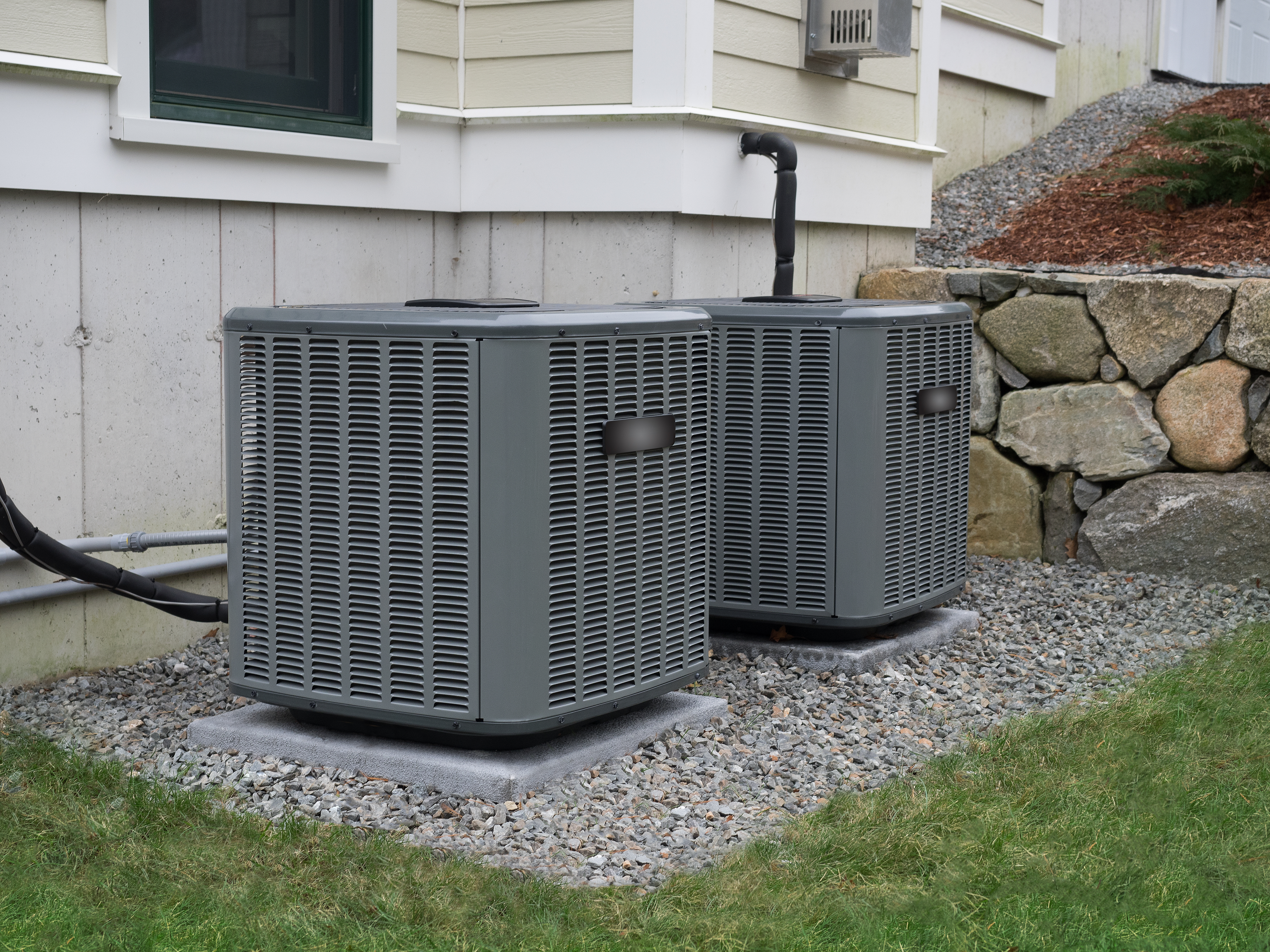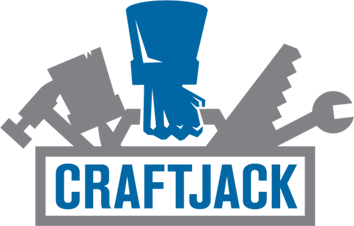How to Start an HVAC Business | CraftJack
Thinking about establishing an HVAC company but not sure where to begin? Check out CraftJack's expert advice on how to start an HVAC business.

If you're an HVAC tech looking to carve your own path as an independent contractor or business owner, you've come to the right place. At CraftJack, we're passionate about helping HVAC contractors succeed and grow, and we have a ton of tools and resources to help you along the way — including this in-depth guide on how to start an HVAC business.
Want to spend more time delivering excellent service instead of searching for leads? Learn more about CraftJack's high-quality contractor leads today.
HVAC Industry Trends
According to Fortune Business Insights, the HVAC industry has experienced steady growth since 2020, going from a market value of $32.25 billion that year to $43.67 billion in 2022. By 2029, the industry's value is forecast to be $62.31 billion, with increased demand for eco-friendly alternatives, smart systems, and other new tech driving the upward trend. That means you're already pretty savvy if you're considering going into business as an HVAC contractor.
Naturally, everyone needs to heat their home when it's cold — and many households across the United States rely on air conditioning to stay comfortably cool. HVAC services are consistently in demand, and starting your own HVAC business means you receive all the profits. However, if going it alone was easy, everyone would be doing it. Not only do you need to be a master of your craft, including being up to date on the latest technology, you must also have a firm grasp of business best practices.
Below you'll discover everything you need to know about how to start an HVAC business, beginning with the benefits and challenges.
7 Benefits of Being an HVAC Contractor
As you've already learned, the heating, venting, and air conditioning industry is thriving, and there's plenty of money to be made. But there are many other reasons to run a business that designs, installs, and/or maintains HVAC systems.
1. Easy to Find a Niche
By doing a little market research, you'll find out how many other HVAC contractors work in your local area and, importantly, who they cater to. If you're in a big city, you will have a lot of options open to you and can probably focus on one HVAC target market, such as commercial, industrial, or residential clients. You might choose based on your experience, but it's a good idea to see if there are any gaps in the market you can fill for an immediate leg up.
Alternatively, if you're in a smaller town, you might focus on all three types of work but specialize in installation, maintenance, or emergency maintenance. Whatever you decide, make sure you have the necessary skills and expertise in HVAC and business so you can hit the ground running.
2. Opportunities to Help People
As an HVAC business owner, you benefit from improving people's lives by solving problems and enhancing quality of life. Every day brings a fresh challenge, and there's a good chance you'll be too busy and engaged to clock watch or get bored. What's more, as a business owner, you'll be ultra-aware that every interaction and exchange is critical to your company's sustained good reputation.
3. AI-Proof
Many industries are being disrupted by AI, but HVAC contractors won't have to worry about robots taking over their jobs any time soon. Although HVAC technology is fast-evolving, clients require a person to troubleshoot and complete the work. However, as a business owner, you can take advantage of advancements in automation and AI for completing tasks such as payroll and customer data, which were significantly more time-consuming in the past.
4. Plenty of Job Prospects
The Bureau for Labor Statistics projects approximately 40,100 openings in the HVAC industry per year, on average, over the next decade. As older HVAC business owners retire and the industry continues to diversify, more up-and-coming entrepreneurs are needed to fill gaps in the market. With new smart technology and environmentally friendly upgrades emerging each year, homeowners and companies are rushing to take advantage of the improvements — which means consistent work for you.
5. High Earning Potential
The BLS states that the median wage for HVAC technicians is $51,390 per year, with the highest earners making an impressive $82,630 annually. Business owners can expect to take home significantly more if they build up a solid roster of clients and develop an excellent reputation. What's more, you can start an HVAC business as soon as you leave school or immediately upon quitting your old job and get into a great financial position relatively fast.
6. Variety
You can shape your HVAC business in any direction you choose, whether it's as an HVAC engineer, a maintenance expert, or an installation technician. You can specialize in specific areas, such as refrigeration units, boilers and water heaters, or furnaces. Provided you have the necessary HVAC certifications and a high school diploma, you can become an HVAC business owner.
7. Sense of Achievement
As an HVAC company owner, you get to see projects go from conception to completion and revel in your successes. Clients benefit from having better living or working environments, and you have the opportunity to build advantageous long-term relationships with customers and fellow business owners. While it's always going to be hard work, it's a reliable and lucrative career that can sustain you and your loved ones long into the future.
What to Consider When Starting an HVAC Business
While many HVAC techs and budding entrepreneurs can make an excellent living running their own businesses, self-employment comes with its own specific challenges. Let's take a look at these.
Working Around the Clock
If you offer emergency HVAC maintenance services, you'll need to be on call around the clock. Even if you don't, you can expect to work lots of early mornings and late nights to ensure you're hitting targets and completing projects cost-effectively. There's a good chance you'll work weekends as well, so being an HVAC business owner isn't the best career path for someone looking for a nine-to-five job.
Physically Demanding
The best HVAC business owners lead from the front, which means plenty of manual labor, long days, and frequent task-switching. You'll need the stamina and strength to stay on your feet and carry equipment and parts day in and day out. If you're someone who enjoys staying active and moving around, it's an ideal career.
Fast-Evolving
As the demand for more energy-efficient, customizable, and smart appliances continues to spike, new HVAC technologies are emerging faster than ever. You need to be a proactive, avid learner to ensure you're up to speed with the latest heating and cooling tech and how to install and maintain the equipment. It's a good idea to go on training courses every year to refresh your skills — as a bonus, being well-trained means you're more likely to win bids.
Experience Is a Must
The toughest thing for most HVAC start-ups is winning the first job. If you come from an HVAC background, it's significantly easier because you can reference previous successes as an employee. Those starting fresh with only their HVAC certification need to be a little more creative. Some solutions include doing work for friends and family and showcasing it — or working as an independent subcontractor during the busy season.
Cost of Starting an HVAC Business
As an HVAC operator, the bare minimum you require is the capital to cover a down payment on a vehicle plus HVAC certification and HVAC tools. HVAC start-up costs usually range between $10,000 and $25,000. Although it's possible to get financing, many investors require that you have a lump sum set aside as collateral.
Below are some start-up costs:
- HVAC certification and training
- Setting up a corporation and business name
- Insurance
- Permits and licenses
- Utilities
- Uniforms
- Office supplies
- Promotional materials
- Online presence
- Vehicle down payment
- Tools and equipment
Here's an idea of the HVAC tools and equipment you need to invest in:
- Flashlight
- Screwdrivers
- HVAC load calculator
- Hammers
- Pliers
- Wrenches
- Tape measure
- Thermometers
- Drills
- Pumps
- Coin fin straighteners
- Multimeter
- Thermal imaging tools
- Nitrogen regulator
- Psychrometer

HVAC Contractor Earnings & Salary
One of the main benefits of learning how to start an HVAC business and going for it is making more money. And while successful HVAC owners can pay themselves a high salary, it's important to manage your expectations regarding the start-up period. In the early stages of business, it's imperative that you make financial sacrifices so you can invest in the future of your HVAC business's success.
Typically, you can expect to earn around 6% of your company's profits during the first few years of business. Once you've established a reputation, pinpointed areas where you make the most money, and implemented systematic processes to cut costs and drive profits, you should be able to earn between 10% and 15% of your HVAC business's turnover.
Traits of Successful Business Owners
Below are five characteristics of the most successful HVAC contractors and business owners:
- Leads by example: If you have employees, it's crucial that you're able to lead by example and cultivate an environment in which people feel safe to air their issues. Aim to inspire your team by being passionate and engaged and having a can-do attitude no matter what.
- Implements strategies: Strategic planning is essential for the long-term success of your HVAC business. You must build a vision and use goals, timelines, milestones, and carefully planned and distributed duties to deliver it.
- Likability: Much of the time, being great at business depends on being likable. Having a warm, witty, and smart personality will help inspire long-term relationships with clients, partners, and employees.
- Understands data: The world is data-led, which means you have a wealth of detailed information about your industry and market at your fingertips. To keep costs low and profits high, you must be able to analyze data about sales, demographics, locations, productivity, purchasing, and more.
- Manages risks: A successful HVAC business owner should have an exceptional ability to mitigate risk. Many contractors are natural risk-takers, and this is mostly a strength in business. However, it's crucial that you're not the type of person who says yes to every job — because getting caught up in a project with red flags drains cash flow and time.
While it helps to already have some of these traits, no one is the full package right away. You can cultivate positive characteristics by being honest about where you're currently at, paying close attention to your actions, and seeking advice from mentors.
How to Start an HVAC Business in 10 Steps
Now you've decided this career path is for you, it's time to learn how to start an HVAC business.
1. Choose a Niche & Name
The very first step when setting up an HVAC business is choosing a target market and which services to specialize in. Conduct market research to determine how many HVAC companies serve commercial, residential, or industrial clients in your area. Determine what local people are looking for, and then think carefully about which services you're best qualified to offer. Small businesses should start modestly, perhaps offering between three and five services, which you can build on later.
Once you've got your position in the market locked in, it's time to think of a name. This is an important step because it defines your brand and determines how memorable your company is, which is critical in the early stages. As such, the name should be snappy, short, unique, and catchy. Keep in mind that having a name that's relevant to the HVAC industry will help you get discovered on search engines.
2. Get Licenses, Certifications, & Permits
Before getting started, you'll need to have a license, permit, and the necessary certifications to start an HVAC contractor company. Each state has its own requirements for HVAC licensing. When it comes to HVAC certification, there are a number of options to choose from, including apprenticeships and degrees — but the only qualification requirement across the board is the Section 608 Technician Certification. Many states also require that you have a permit to carry out HVAC work, including California and Maryland.
3. Devise an HVAC Business Plan
You may have thought business plans were only for big corporate entities, but every company needs one. Your plan forms the blueprint of your business strategy and guides you through the start-up phase by helping you stay focused on core objectives. It should outline your company's mission, vision, and corporate goals, as well as outlining your services in detail. Include your competitive analysis, marketing plan, management plan, operational plan, and financial forecasts for the short, mid, and long term.
4. Register Your Business
It's time to make your HVAC company official! Registering a business is relatively inexpensive and simple. The most important part is choosing which type of entity it will be:
- Sole proprietor: Gives you full control but is primarily for HVAC contractors who operate solo.
- Partnership: For someone starting an HVAC company with one or more other people.
- Limited liability company (LLC): Protects your personal assets in case of legal problems.
5. Register for Taxes & Get Funding
If you plan on having employees at any point, it's crucial that you get an employer identification number (EIN). At this stage, you also choose a tax year to determine which tax cycle you operate within, and your business structure dictates how you pay taxes.
With all that sorted out, you can seek funding in the form of loans, grants, crowdfunding, or borrowing from friends and family. Small Business Administration (SBA) and bank loans are often the best borrowing options for new HVAC business owners.
6. Open a Business Bank Account
One of the biggest mistakes new HVAC business owners can make is not keeping their personal bank account separate from their business account. Even if you're a sole proprietor, it'll help you keep track of your income and expenses — and make things much easier when it's time to file taxes.
7. Get Business Insurance
As an HVAC contractor who spends time in people's homes, business insurance is essential in case of an issue on a job site. Never skip insurance due to its expense, as not having it could cost a lot more if a client tries to sue you for damages.
8. Build an HVAC Team
As an HVAC company owner aiming to start out small, there's a good chance you won't have employees right away. Doing the work yourself initially can help you cut costs during the start-up period, plus it gives you full insight into how every element of your operation runs. However, as your business grows, there's a good chance you'll need to hire people — and you should factor this into your early plans. Examples of roles in an HVAC business include:
- HVAC techs
- Dispatcher
- Salesperson
- Manager
- Marketer
9. Set Your HVAC Pricing Structure
With a full understanding of how your HVAC business is going to operate, you're ready to set prices for your services. Be sure to research what competitors are charging for HVAC services in your area, establish a markup value that enables you to meet your profit margin objectives, and create a menu of add-ons so you can upsell to customers. Finally, decide on the type of pricing structure you'll offer: hourly rates, flat rates, or a hybrid.
10. Prepare to Launch Your HVAC Company
Now that your HVAC business is a reality, you should spread the word to as many local people as possible. Marketing is absolutely integral to the success of your business, and there are tons of methods and resources available to tap into. Start by:
- Developing a company brand, including your logo, HVAC website, business cards, uniform, and vehicle
- Establishing an online presence, with slick web design, location and service pages, and helpful blog posts and articles
- Using traditional marketing methods such as door-to-door canvassing and handing out flyers
- Signing up with a trusted lead generation website that works in the background to send you leads while you get on with running your HVAC business
Dream of Being Your Own Boss?
Now that you know how to start an HVAC business, what are you waiting for? Learn more about how CraftJack's high-quality, phone-verified leads can help you succeed.




